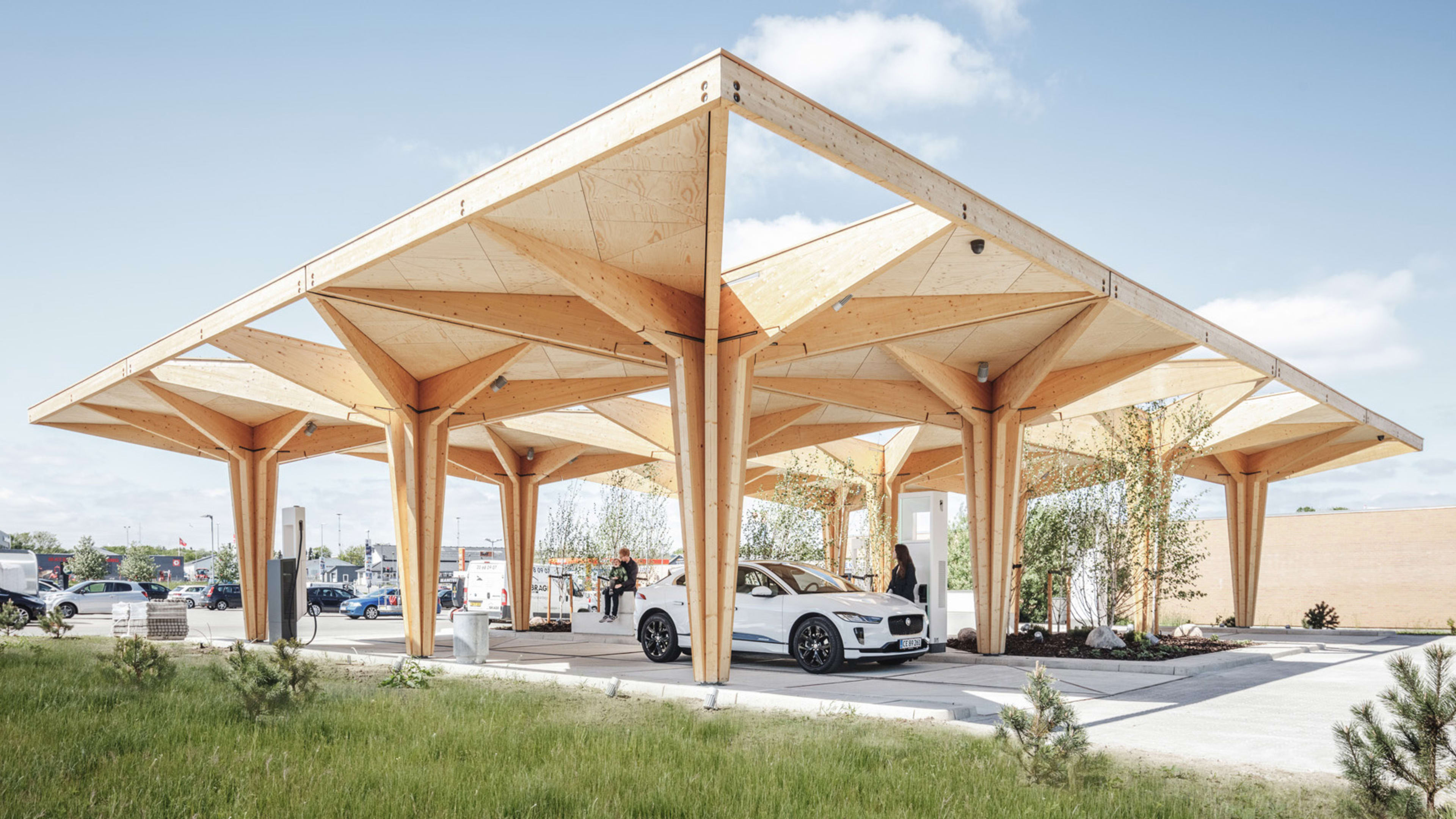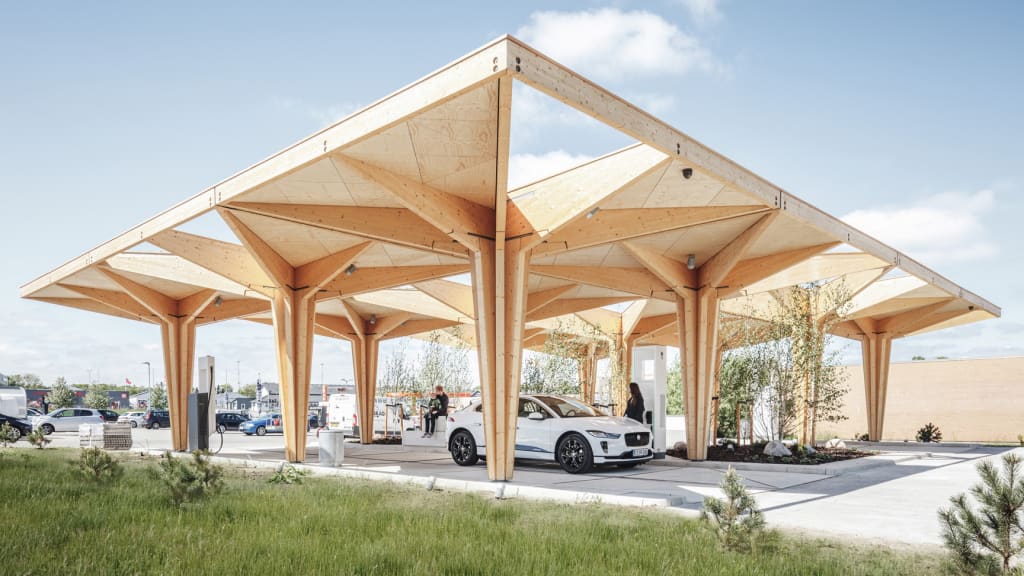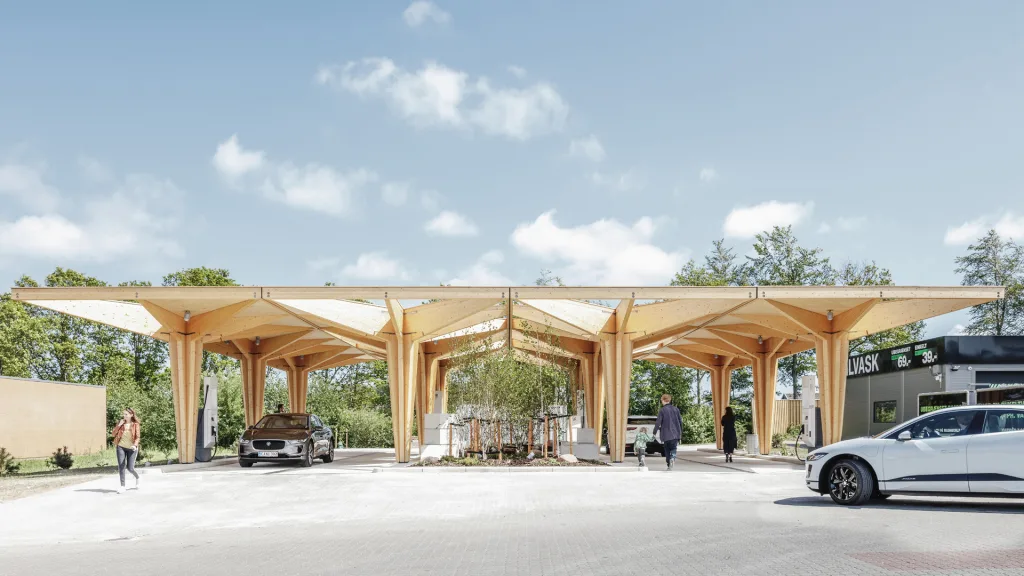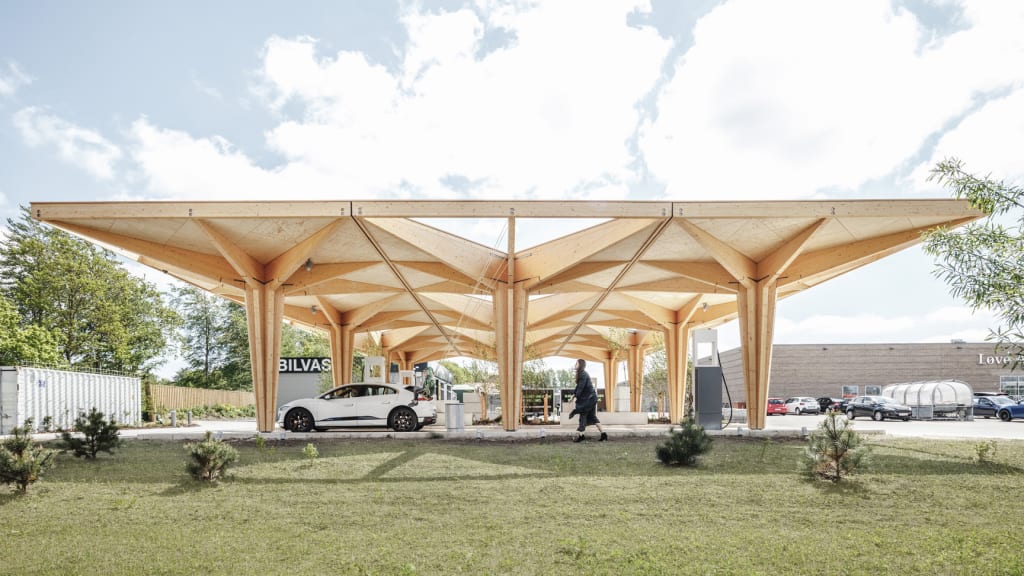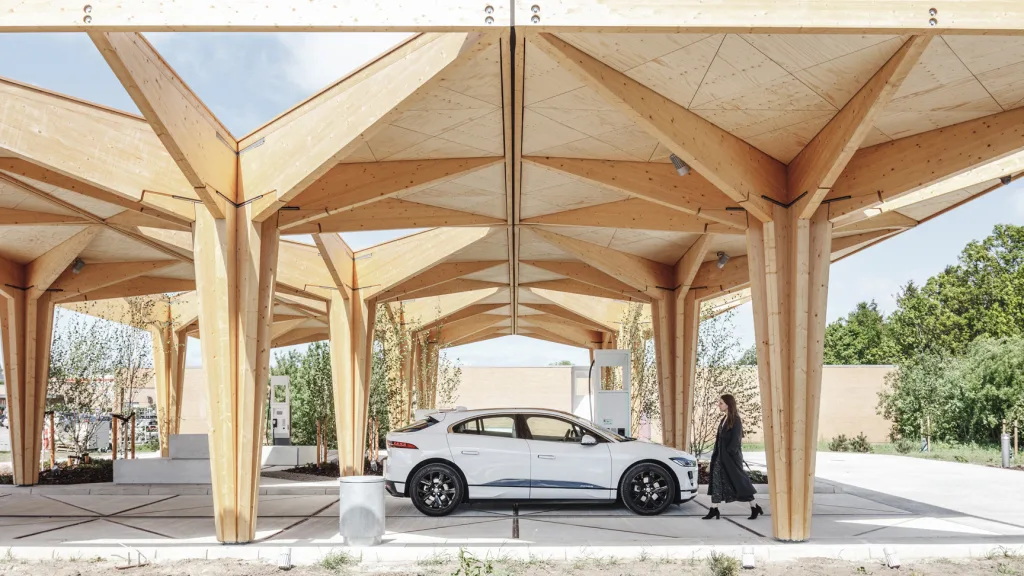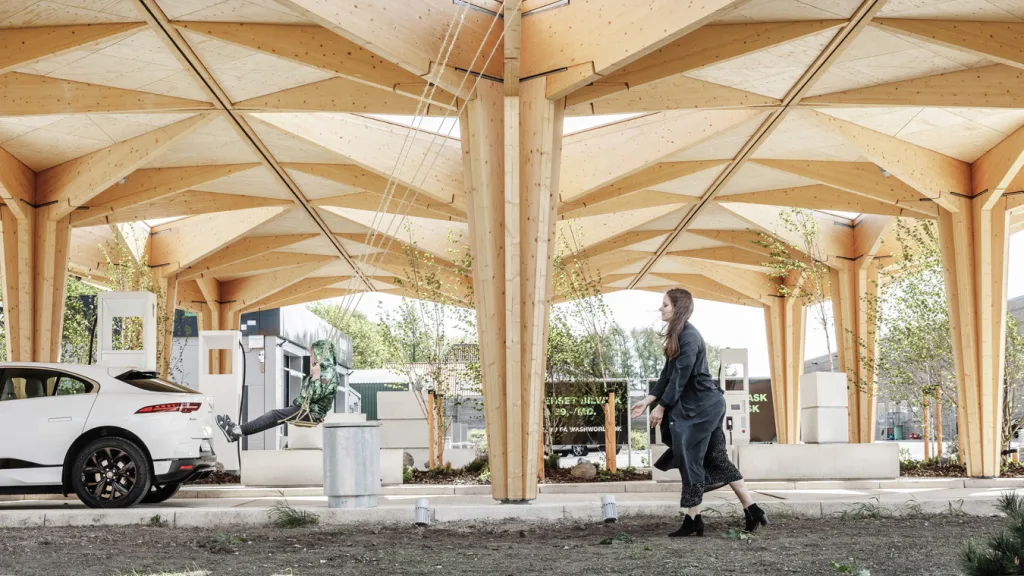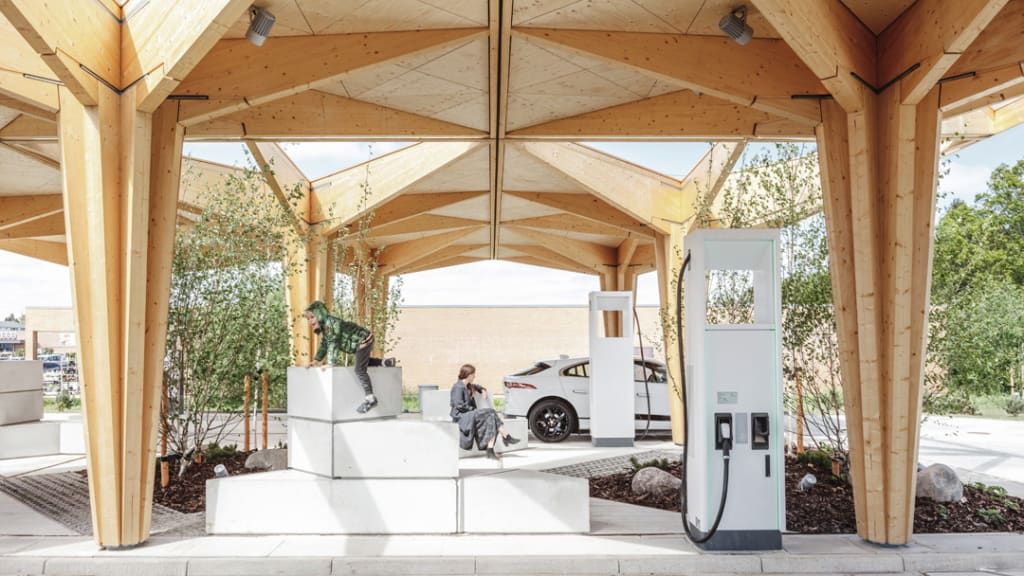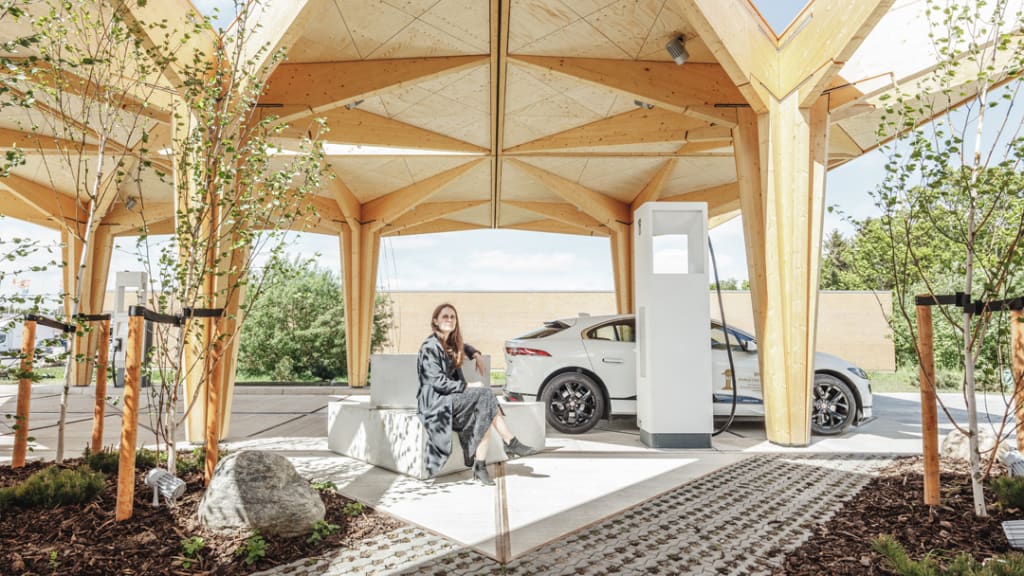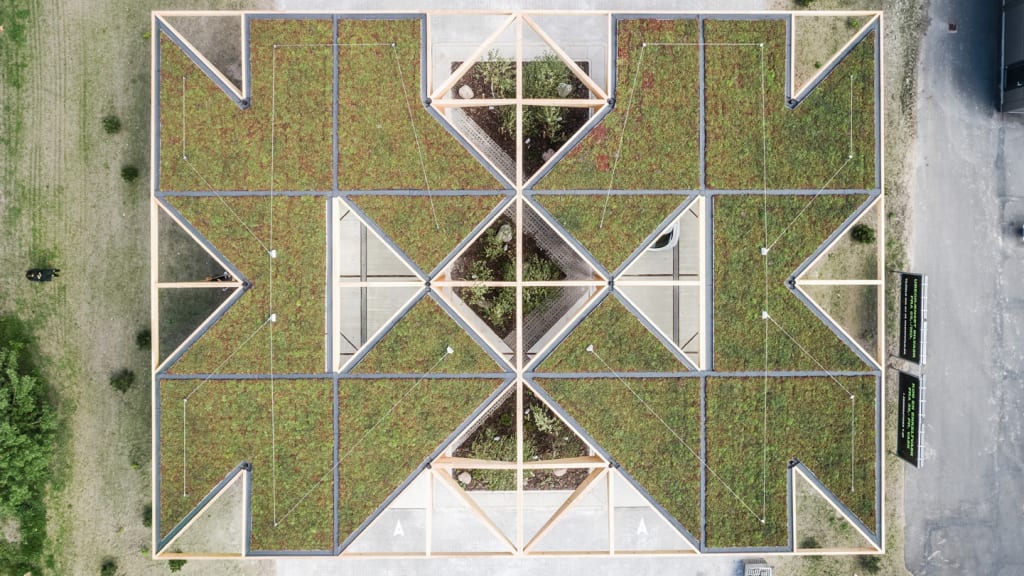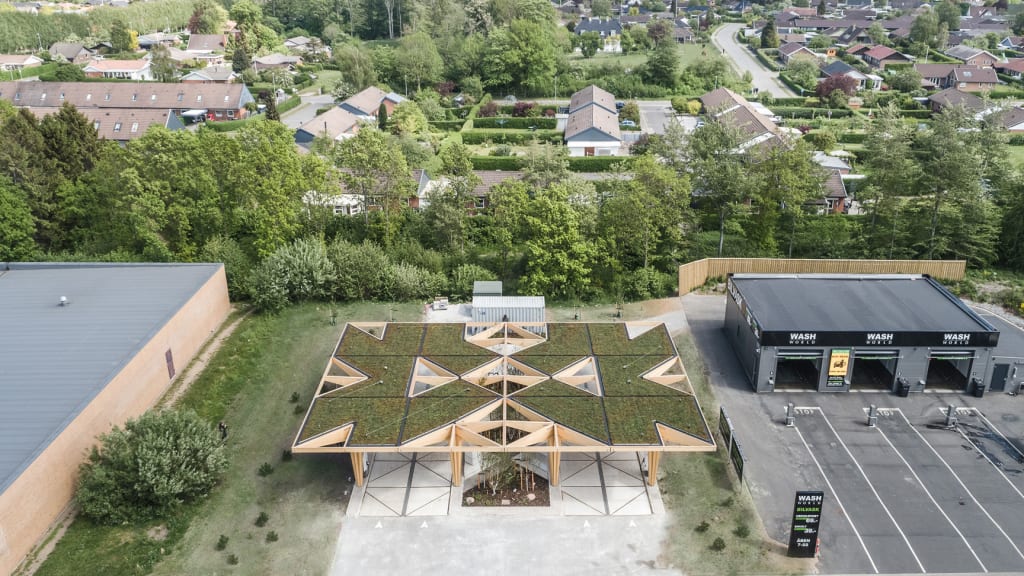At this new ultra-fast charging station for electric cars along a highway in Denmark, it takes 15 minutes to recharge a vehicle—far faster than plugging in at home, but still slower than pumping gas. The designers took advantage of those extra minutes: Unlike a gas station, this is a place where people actually want to spend time.
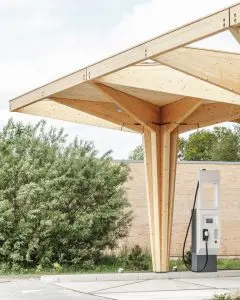
“The charging stations revolve around a green rethink of the traditional gas station where lines of vehicles and the smells of gas fumes and car exhaust are the norm,” says Dan Stubbergaard, architect and founder of COBE, the firm that designed the station. There is, of course, no pollution. A tree-like canopy, made from sustainably harvested wood, offers shade for people sitting on benches while they wait for the charging to finish. A swing dangles from one section of the canopy. Everything is surrounded by trees and other plantings aimed at boosting biodiversity in the area. “We offer EV drivers a timeout and an opportunity to mentally recharge in a green oasis,” he says.
The power used to charge the cars comes from the Danish grid, which is moving quickly toward renewable energy (by 2020, sources like wind and solar will cover 80% of the country’s energy consumption). But the design also leaves space on top of the canopy to add on-site solar panels. The station is the first of 48 ultra-fast charging stations along Scandinavian highways.
As electric cars become more common, traditional gas stations will dwindle. For many electric car owners, the driveway is the new gas station; depending on the number of apartment dwellers in a particular area, few charging stations may be necessary. That makes space for other ways to use land, from housing to playgrounds. Other charging points can be on the street (as in these converted streetlights) or in existing parking lots. “It will be possible to charge your car as an integrated experience in your everyday life—at home, at work, at the store while you buy your groceries, at the doctor, or at the library,” says Stubbergaard. And on highways, as in the new network in Denmark, refueling might become more like visiting a park.
Recognize your brand’s excellence by applying to this year’s Brands That Matter Awards before the early-rate deadline, May 3.
